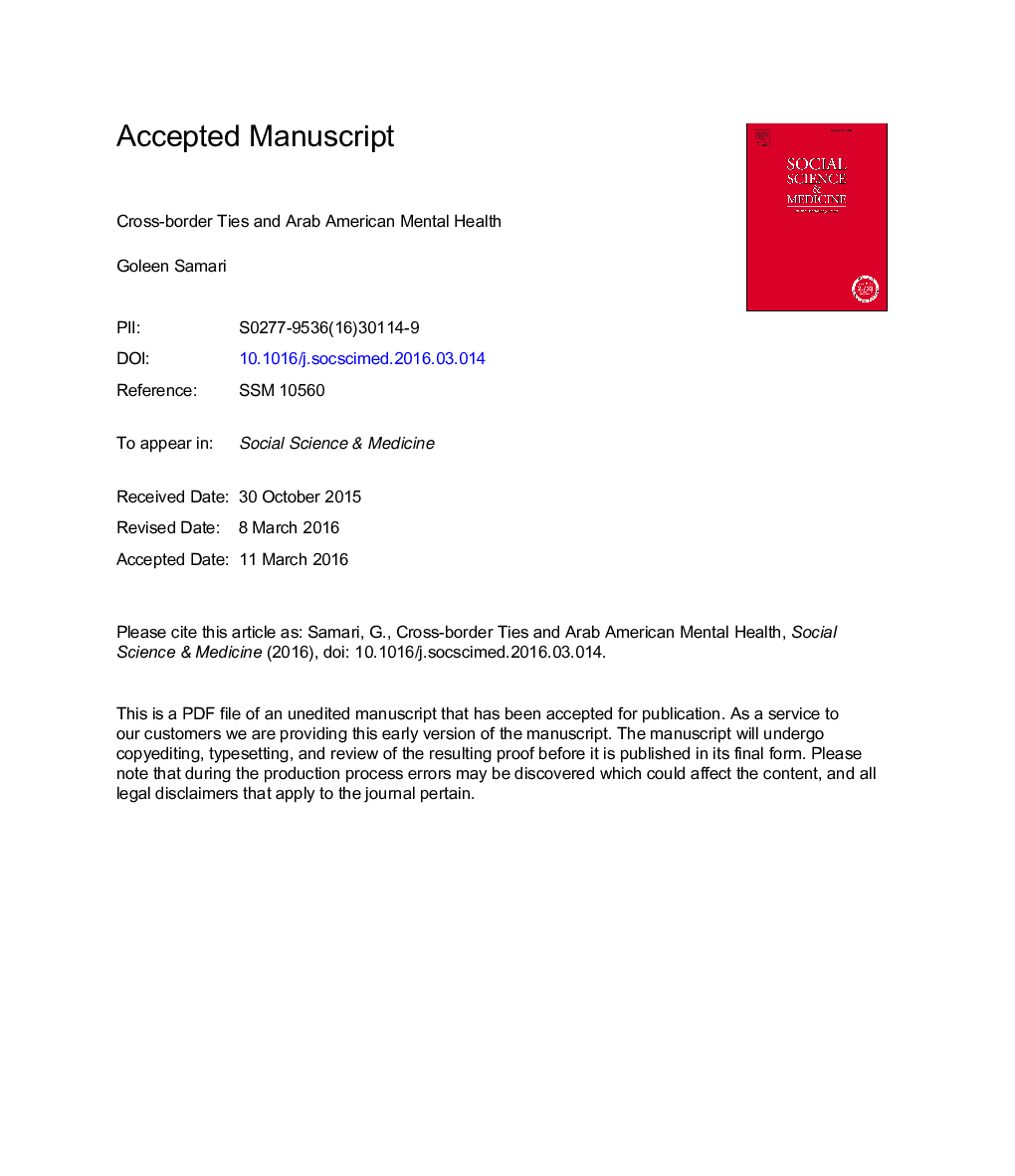| کد مقاله | کد نشریه | سال انتشار | مقاله انگلیسی | نسخه تمام متن |
|---|---|---|---|---|
| 7330374 | 1476014 | 2016 | 33 صفحه PDF | دانلود رایگان |
عنوان انگلیسی مقاله ISI
Cross-border ties and Arab American mental health
ترجمه فارسی عنوان
روابط مرزی و سلامت روان عرب آمریکا
دانلود مقاله + سفارش ترجمه
دانلود مقاله ISI انگلیسی
رایگان برای ایرانیان
کلمات کلیدی
روابط بین المللی، سلامت مهاجران، عربی آمریکایی، سلامت روان، ایالات متحده،
موضوعات مرتبط
علوم پزشکی و سلامت
پزشکی و دندانپزشکی
سیاست های بهداشت و سلامت عمومی
چکیده انگلیسی
Due to increasing discrimination and marginalization, Arab Americans are at a greater risk for mental health disorders. Social networks that include ties to the country of origin could help promote mental well-being in the face of discrimination. The role of countries of origin in immigrant mental health receives little attention compared to adjustment in destination contexts. This study addresses this gap by analyzing the relationship between nativity, cross-border ties, and psychological distress and happiness for Arab Americans living in the greater Detroit Metropolitan Area (NÂ =Â 896). I expect that first generation Arab Americans will have more psychological distress compared to one and half, second, and third generations, and Arab Americans with more cross-border ties will have less psychological distress and more happiness. Data come from the 2003 Detroit Arab American Study, which includes measures of nativity, cross-border ties - attitudes, social ties, media consumption, and community organizations, and the Kessler-10 scale of psychological distress and self-reported happiness. Ordered logistic regression analyses suggest that psychological distress and happiness do not vary much by nativity alone. However, cross-border ties have both adverse and protective effects on psychological distress and happiness. For all generations of Arab Americans, cross-border attitudes and social ties are associated with greater odds of psychological distress and for first generation Arab Americans, media consumption is associated with greater odds of unhappiness. In contrast, for all generations, involvement in cross-border community organizations is associated with less psychological distress and for the third generation, positive cross-border attitudes are associated with higher odds of happiness. These findings show the complex relationship between cross-border ties and psychological distress and happiness for different generations of Arab Americans.
ناشر
Database: Elsevier - ScienceDirect (ساینس دایرکت)
Journal: Social Science & Medicine - Volume 155, April 2016, Pages 93-101
Journal: Social Science & Medicine - Volume 155, April 2016, Pages 93-101
نویسندگان
Goleen Samari,
